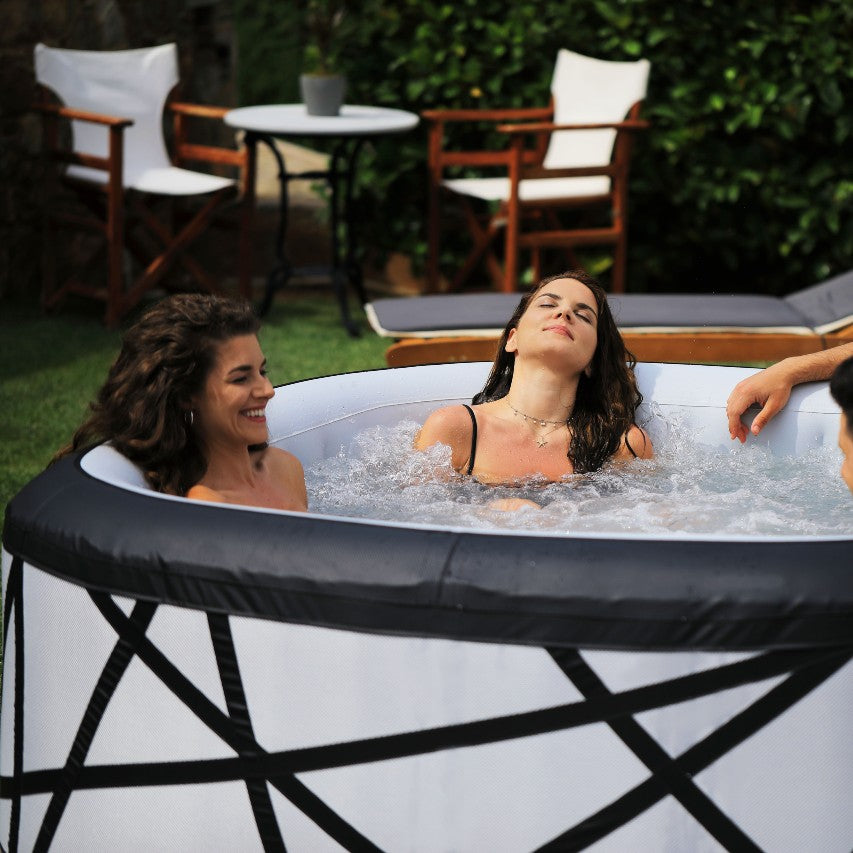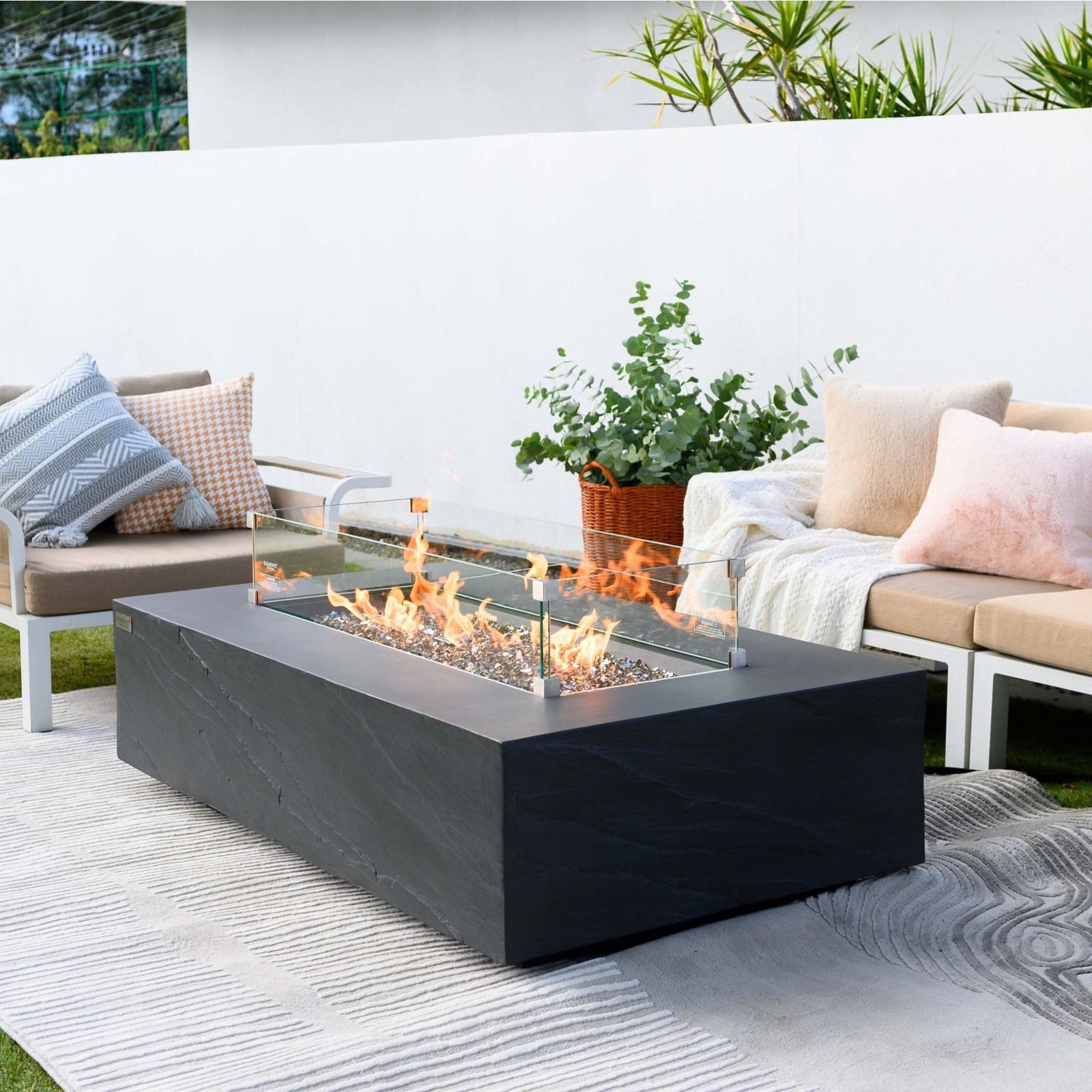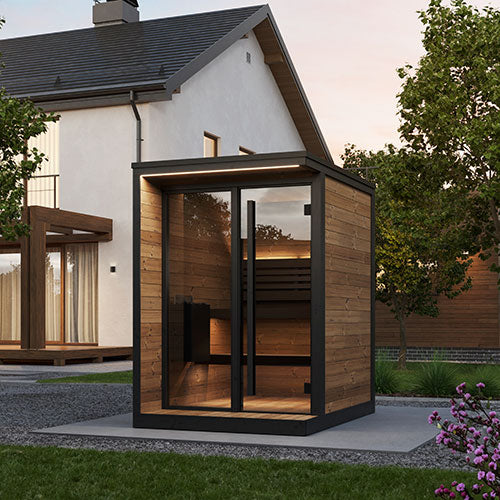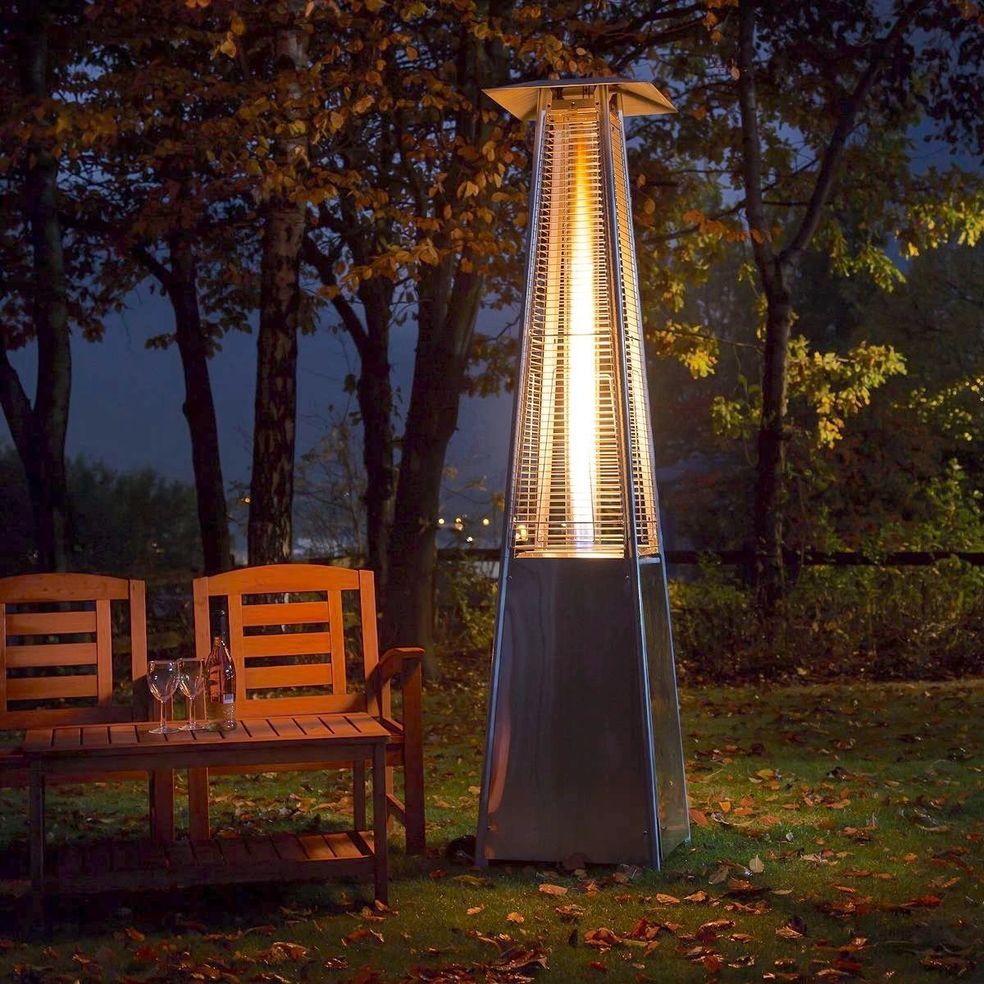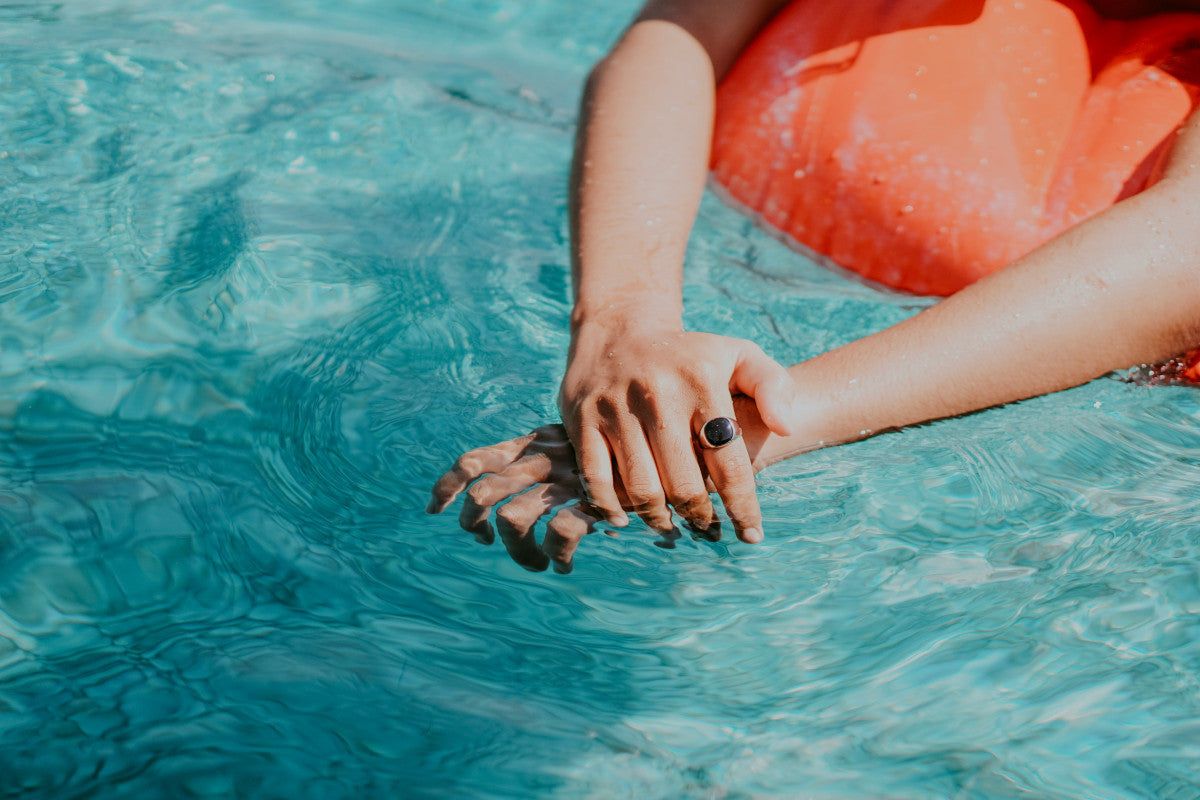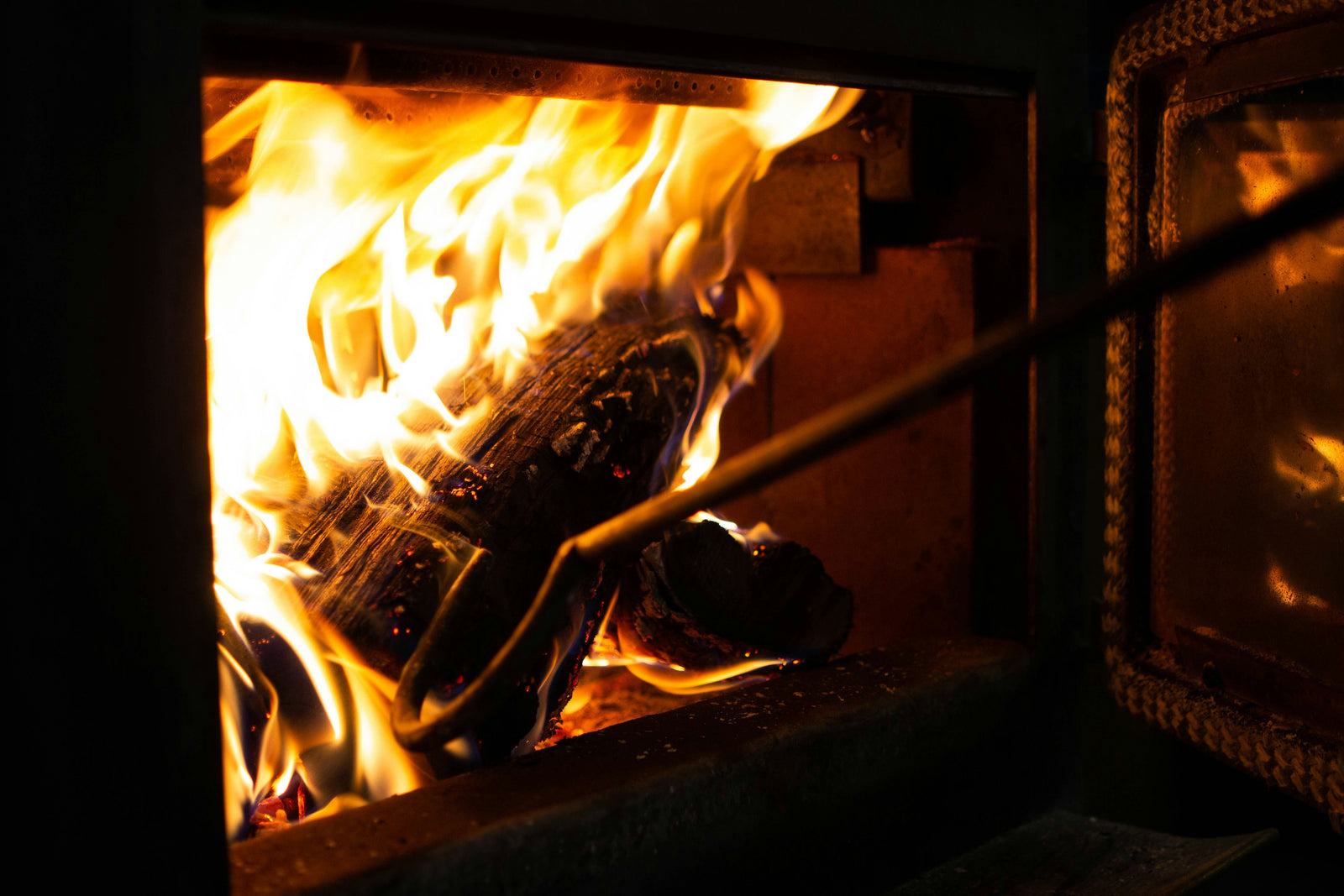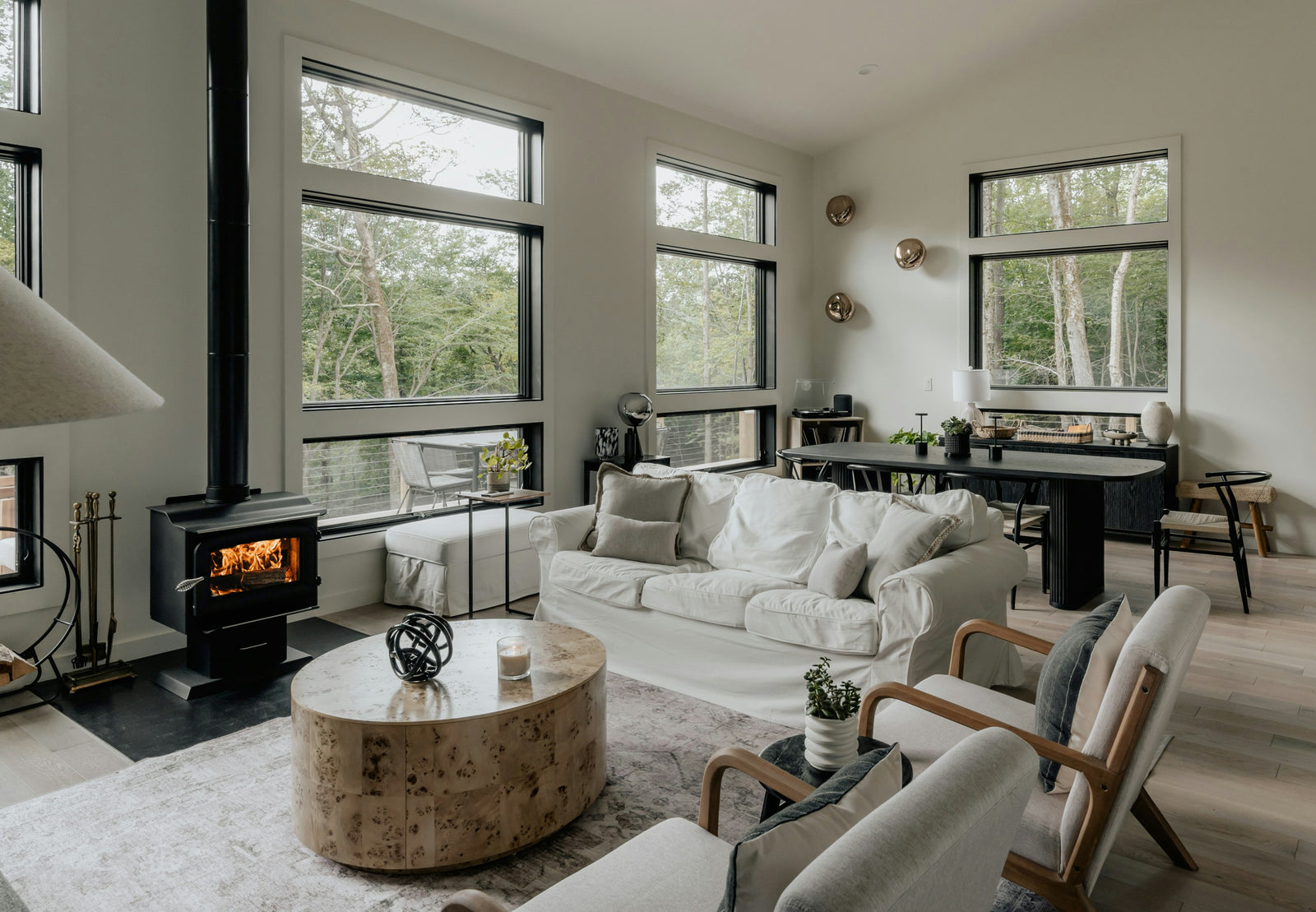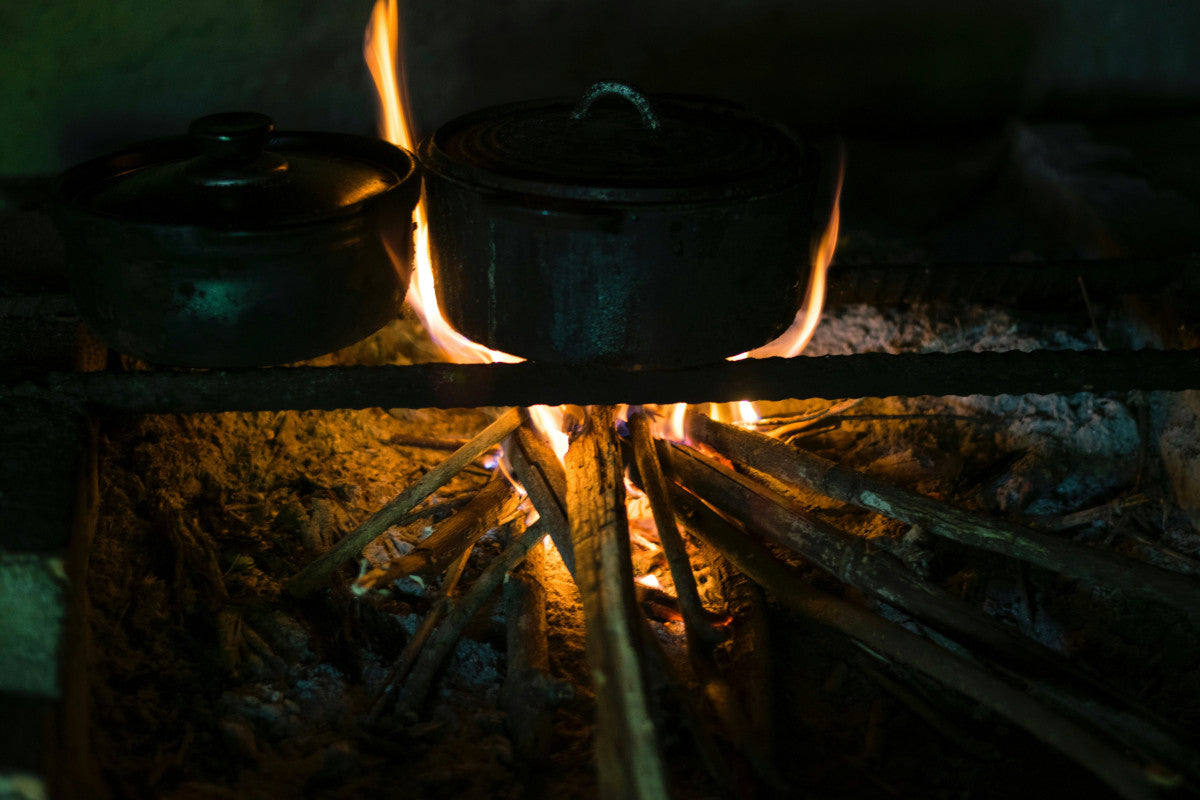You've been waiting patiently, anticipating the moment when your pool reaches that perfect, inviting temperature. Maybe you’ve even got friends on their way ready for the first swim of the season!
But as minutes turn into hours, the water remains cold. Why is your pool heat pump not heating? You’re left puzzled and concerned about what might be wrong. But don't worry - we'll help you get to the root of the problem and fix the issue once and for all.
Our comprehensive troubleshooting guide is designed to identify common culprits:
- Heat pump not running
- Suboptimal water flow
- Evaporator coil obstruction
- System leaks
- Low ambient air temperature
If you purchased your unit here at OutdoorDirect, remember that your unit is covered by a 7-year warranty and that our customer service team is on standby ready to help you troubleshoot further and discuss the next steps.
But, should you discover that replacement is in your future, remember that the best pool heat pump is just a few clicks away. Our AquaCal pool heat pumps are the pinnacle of pool heating performance and as reliable as it gets!
Why is My Pool Heat Pump Not Heating?

You paid good money to get your pool heat pump installed, so it’s fair to feel frustrated right now. But, there’s usually a straightforward solution to get the device working as intended. Let’s get to the bottom of your pool heater not heating below.
Is the Heat Pump Running?
The first step in diagnosing a non-heating pool heat pump is to check if the unit is actually running. Ensure it’s connected to the power source and the circuit breaker hasn’t tripped. A tripped breaker or blown fuse can prevent the unit from operating.
Next, verify that the thermostat is set to a higher temperature than the current pool water temperature. The heat pump may not activate if it’s set too low.
You can also take a look at the control panel for any error messages or indicators. Modern heat pumps have diagnostic features that can help identify specific issues.
Your senses will offer a clear indication of whether or not the pump is actually running, too. Listen for the sound of the fan and compressor working. Yes, you want your pump to work quietly - but complete silence or unusual noises suggest a problem that needs further investigation.
Is it Getting Enough Water Flow?
Ok, so your pump is running, but it’s not heating. The next step is to find out if it’s getting enough water flow. Here is how to assess and address water flow issues:
- Check the Pump and Filter: Ensure the pool’s circulation pump is working and the filter is clean. A dirty filter or malfunctioning pump can restrict water flow, hindering pump performance.
- Inspect for Blockages: Look for any blockages in the strainer baskets, pipes, or valves that could impede water flow. Clear any debris or obstructions found.
- Flow Rate: Verify that the flow rate through the heat pump is within the manufacturer’s recommended range. Insufficient flow can prevent the heat pump from heating properly.
- Valve Position: Make sure all valves in the water circuit are correctly positioned to allow full water circulation through the heat pump.
Is Your Evaporator Coil Obstructed?
The evaporator coil in a pool heat pump absorbs heat from the air. Any obstruction can severely affect its ability to function, so this is worth checking as well.
Look to see if there are any leaves, dirt, or debris that could block airflow. Regular cleaning is necessary to maintain optimal efficiency. Furniture, plants, or other objects too close to the unit can restrict airflow at either the air intake or the exhaust of your pump. This is part of why proper installation is so important.
Beyond obstruction, gauge the overall condition of your coil. Frost or ice on the coil can indicate a refrigerant issue. In normal conditions, the coil should be clean and free of ice. We’ll talk more about this later, but regularly servicing your heat pump will ensure the coil continuously works as intended.
Is There a Leak Somewhere in the System?
One of the most common sources of a pool heat pump not heating is a leak within the system. Unfortunately, fixing this issue is a bit more involved - but we’re here to help you rectify the problem.
Start by identifying whether or not a leak is actually present. There are three ways you can do this:
- Visual Inspection: Check for visible signs of moisture, oil, or refrigerant around the heat pump. Refrigerant leaks might leave oily residues near connections or on the pipes.
- Pressure Testing: Use pressure gauges to check the system's pressure levels. A pressure drop could indicate a leak in the refrigerant circuit.
- Listen for Hissing Sounds: Refrigerant leaks can sometimes emit a hissing noise from the area where the leak is occurring.
If you do discover a leak, it’s just a matter of fixing it. If your leak is a water pipe, fixing it yourself is easy enough - tighten connections or replace damaged sections of piping. You should also ensure all seals and gaskets are intact and free from cracks or wear.
But, if it’s a refrigerant leak you’re dealing with, don’t do anything. This is something best left to a professional due to environmental and safety regulations. Contact a certified HVAC professional.
What is the Ambient Air Temperature?
As you may know, the performance of your pump is directly correlated to the ambient air temperature. Heat pumps extract heat from the air, so their heating capacity diminishes in colder weather.
So, if you’re struggling with your pool heat pump not heating, ask yourself - should the pump even work in these conditions? Ideal operating temperatures are above 50°F. Any lower and your pump’s performance will fall off dramatically.
It’s also possible that your pump has entered a defrost mode to prevent ice formation, temporarily reducing heating capacity.
This is where it’s important to manage your expectations before buying a heat pump. Understand the limitations of your heat pump in your climate, particularly during the colder months, and adjust your heating expectations accordingly.
You may have to wait a bit longer for temperatures to warm up in the spring depending on where you live, or wrap up your swim season a bit earlier in the fall. Or, consider supplemental heating solutions such as a thermal pool cover, a gas heater, etc.
Still Not Sure What the Issue Could Be?

Hopefully, we’ve helped you troubleshoot the issue that’s hindering your pump’s performance. If not, what now?
If you purchased your heat pump from us at OutdoorDirect, reach out to our customer service team. We’re here to support you, ensuring your heat pump operates effectively. That could mean offering additional troubleshooting tips, connecting you with AquaCal to discuss the warranty, or helping you find a replacement.
Otherwise, it may be time to seek local expertise or get in touch with whomever you purchased your pump from.
But if you arrive at the conclusion that repairs are not going to get your pump working the way you need it to, remember that you can find a reliable pool heat pump replacement at OutdoorDirect!
Find a Reliable, Efficient Replacement at Outdoor Direct!

Outdoor Direct is your trusted provider for all things outdoor enjoyment - whether you want to upgrade your patio or replace your pool heat pump.
You gain access to the reliable, quality products you deserve at the best possible price, all backed by our friendly customer service team. We’ll help you choose between the two best solutions currently on the market: AquaCal HeatWave SuperQuiet Heat Pump or AquaCal TropiCal Heat Pump.
But first, let’s determine whether repair or replacement is your best avenue.
Weighing the Cost of Repair Against Replacement
Before opting for a new heat pump, consider the repair costs of your current unit. If repairs are frequent or the price approaches 50% of the cost of a pool heat pump replacement, this is often the more economical choice.
Investing in a new heat pump can also lead to savings on energy bills and maintenance costs. But most importantly, you won’t have to deal with the hassle and frustration of your pool heat pump not heating.
Picking the Perfect Pump at OutdoorDirect
Choosing the right heat pump involves understanding your pool’s specific needs. The size of your heat pump should match your pool’s volume to ensure efficient heating.
A unit too small won’t adequately heat your pool, while an overly large pump can lead to unnecessary energy consumption. This chart helps you understand the ideal BTU range for your specific needs:
From there, you’ll want to choose either the TropiCal or HeatWave SuperQuiet series, each of which has its place in the pool heating industry. They’re both made with quality materials and backed by impressive 7-year warranties. Each has intuitive features and exceptional efficiency.
The HeatWave SuperQuiet series suits those looking for ultra-efficient, whisper-quiet operation, and advanced features. This series ensures maximum efficiency and comfort, making it best for larger pools or in areas where noise is a concern.
Conversely, the TropiCal series is ideal for homeowners seeking an energy-efficient solution without the premium cost. It's perfect for small to medium-sized pools and offers reliable performance in moderate climates.
You can’t go wrong either way, and remember - we’re just a click or call away ready to help you choose the right replacement! You can also take our simple quiz below for a quick recommendation:
Still not sure which heat pump is right for you?
The Role of Proper Installation and Regular Maintenance to Prevent Issues Going Forward
Once you’ve chosen your pool heating solution, it’s important to prioritize proper installation. This will help you avoid issues like your pool heat pump not heating down the line.
While it’s appealing to try and handle it yourself to save money, professional expertise is worth the peace of mind and superior performance you’ll get.
Further to that point, you should invest in routine maintenance that can prevent common issues from escalating into major problems. Regular checks, cleaning filters, and ensuring the system is free from obstructions will keep your heat pump running smoothly.

Closing Thoughts on Pool Heater Not Heating
We know that sitting around waiting for your pool to warm up, only to discover your pool heat pump not heating, is beyond frustrating. But hopefully, this troubleshooting guide helps you get back on track and allows you to enjoy your pool as you had hoped you would! Remember the common issues:
- Power supply
- Water flow
- Coil obstructions
- Leaks
- Ambient temperature impacts
Recognizing when to opt for repair or replacement is key to maintaining an efficient and enjoyable pool experience. At OutdoorDirect, we offer the guidance and high-quality AquaCal heat pumps you need to ensure reliable pool heating.
From small pool heat pumps to commercial pool heat pumps, pool heater chiller combos, above-ground pool heat pumps, and even full-fledged AquaCal chillers, we’ve got you covered.
Our blog has more resources on topics how to install a pool heat pump, sizing a pool heat pump, how long to heat a pool, and choosing between a pool heat pump vs gas heater if you’d like to learn more.
Otherwise, put the frustration and stress of a pool heat pump not working in the past today - explore our solutions and embrace a seamless swim season every year!

